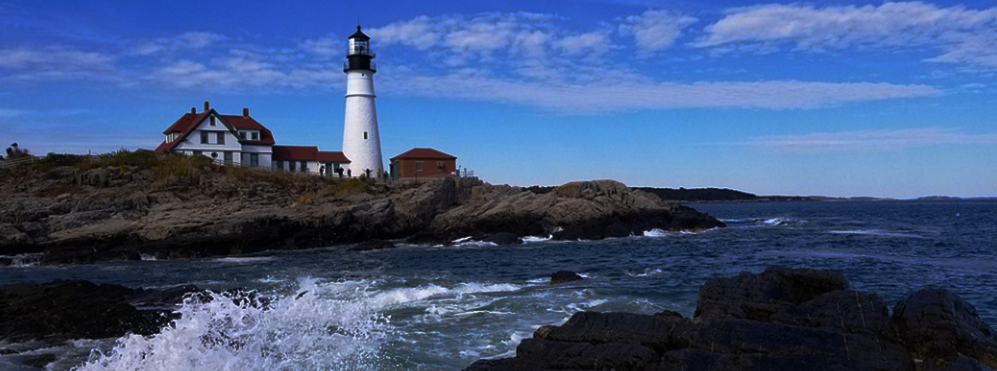
Tourism and Leisure
The primary economic engine of Coastal Maine, also known as Vacationland, is the summer tourist season, which experienced tremendous growth in 2021 and continued strengthening in 2022. Attractions such as Acadia National Park, local beaches, lighthouses, and a host of restaurants, bars, breweries have remained the drivers of leisure travel. Bleisure travel (a combination of business and leisure travel) to the Maine/Greater New England area has also increased substantially over the past 18 months, further bolstering lodging performance. Despite the staggered opening of the U.S.–Canada border, and with COVID-19 testing and/or vaccination requirements through early 2022, the market continued to grow.The strength of tourism in this market is evident in the recent statistics. Acadia National Park hosted a record four million visitors in 2021, and attendance held strong at over 3.3 million visitors from January through September 2022. Furthermore, Maine travel spending was up 25% from January through May 2022 compared to the same period in 2019, according to the U.S. Travel Association. In 2021, tourism generated $7.9 billion in revenue and supported 143,000 jobs, as reported by the Maine Office of Tourism. A total of 9.1 million visitors came to Maine in the summer of 2022, with 83% from out-of-state. Furthermore, the Maine Office of Tourism reported that, for May 2022 through August 2022, statewide occupancy reached 67.6% (a 5.3% increase from the 2021 level), statewide ADR was recorded at $235.71 (a 24.4% increase from the 2021 level), and statewide RevPAR reached $159.27 (a 30.9% increase from the 2021 level). During this period, the number of visitors declined by nearly 10%; however, the average length of stay increased, resulting in greater spending.

Despite the aforementioned positive factors, similar to the majority of markets across the nation, the workforce has arguably been the most difficult challenge for Maine’s leisure industry. With the pandemic as a catalyst, employees have left the workforce for various reasons: to pursue higher education, to retire, to care for family members, to start a business, and so on. This trend has negatively affected the quality of service and guest experiences; according to the Maine Office of Tourism, 14% of visitors from early 2022 reported that customer service did not meet their expectations. As a result, visitors may feel discouraged from returning. To combat this issue, in addition to competitive wages and benefits, employers have been implementing incentives and initiatives to create rewarding work and help employees feel appreciated and to ultimately attract and retain a qualified workforce. Although staffing has been the Achilles’ heel of the industry, there is a general sense of cautious optimism for the near- and long-term outlook.
Portland
In Portland, one of Maine’s primary commercial markets, the entrance of new supply over the last several years has also been noticeable, including a Canopy by Hilton that opened in July 2021 and a Cambria that opened in October 2022. The additions have significantly heightened competition, although the supply has continued to be absorbed by the market. Since Portland’s Old Port revitalization in the 1990s, the city has become a bustling summer leisure destination. The market finished 2021 with occupancy in the low 60% range (a 45% increase from 2020) and ADR spiking to the $240s (an over 60% increase from 2020), with RevPAR rebounding to pre-COVID levels. For 2022, the market is on pace to finish with occupancy in the high 60s or low 70s, ADR in the mid-to-high $200s, and RevPAR surpassing pre-COVID peaks.
Outlook
The majority of Coastal Maine markets have already recovered to pre-pandemic levels from a demand perspective and have undeniably surpassed these thresholds from an ADR standpoint. So, where do the market trends go from here? There are mixed sentiments on where market metrics, particularly ADR, will land. Some believe that a correction will occur and ADR will tumble back down to pre-COVID levels, while others expect that rate will continue to grow or will stabilize at the new higher levels. With significant increases in pricing nationwide, exacerbated by inflation, rate integrity appears likely to remain in place for the near future, albeit with more tempered growth than what the market has experienced in the past two years. While some uncertainty remains, Coastal Maine is sure to remain a strong leisure market.We continue to monitor the factors affecting Coastal Maine lodging market through our regular consulting engagements. For more information or to inquire about a specific hotel project, please contact Brian Bisema or Raymond Parejo of our Boston team.
Contributions to this article were also made by Ayushi Shah.

0 Comments
Success
It will be displayed once approved by an administrator.
Thank you.
Error